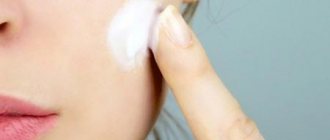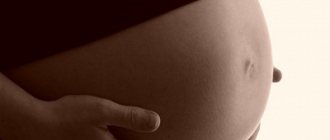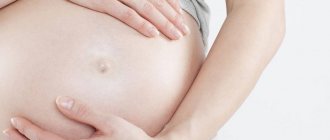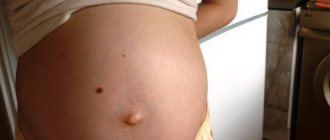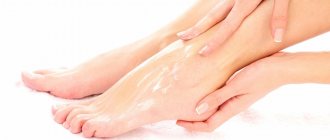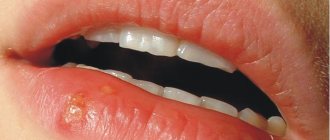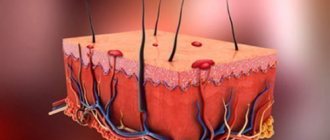The period of bearing a child is accompanied by various changes in the body of the expectant mother. One of the unpleasant symptoms that a pregnant woman faces is increased sweating. This phenomenon in some cases is considered absolutely normal and has a medical explanation. Let's consider what to do if you are worried about sweating during pregnancy, and in what cases the expectant mother should be wary.
Causes of occurrence in pregnant women
There are several reasons that contribute to the occurrence of hyperhidrosis in early pregnancy.
Hormonal imbalance
Changes in the amount of hormones in a pregnant woman’s body are common. It is most often provoked by excessive sweating. During pregnancy, endocrine organs produce more of the hormones that are necessary for the normal development of the baby. There are significantly fewer others.
Changes in the functioning of the endocrine system affect the activities of other organs. Sweat glands are no exception. Even with slight heat or physical activity, sweat is released, as when going to the bathhouse.
Changes in the functioning of the nervous system
Excessive sweating can also occur due to nervous tension and stressful situations. Pregnant women are more susceptible, so small experiences are difficult to bear.
Sweating during emotional stress occurs because the blood flow increases, the heart begins to beat faster, breathing quickens, and body temperature rises. All this leads to increased sweating.
Increased stress on the body and excess weight
While carrying a baby, the body weight of the expectant mother increases. This fact directly affects the increase in the volume of sweat released. After all, with a lot of weight, the body is subjected to increased stress. Even to move, a person needs to expend more energy, which is inevitably accompanied by sweating.
Natural Remedies for Sweating During Pregnancy
The problem of excessive sweating during pregnancy can be alleviated by using sage extract. Its leaves contain thujone, which in excessive quantities has a sedative effect, so you should not use too much for a single brew.
You can drink tinctures prepared from 1-2 g of sage leaves every few days, or use baths made from an infusion of 15 g of leaves - pour them into a liter of boiling water, cover and cook for 15 minutes.
The finished infusion must be filtered through a sieve. After consulting a doctor, pregnant women can also take sage tablets. You can also use a decoction of oak bark.
Locations
Increased sweating during pregnancy can occur in different parts of the body.
Palms
Pregnant women often experience sweaty hands. In addition to sweating, they become cold. This occurs when a person is worried or physically tense. Therefore, it is often difficult for expectant mothers to work with documents and hold small objects in their palms.
Legs
Not only your hands, but also your feet can be regularly wet and cold during pregnancy. This causes the greatest discomfort, since pathogenic microorganisms quickly and actively begin to multiply on sweaty feet. Because of them, there is an unpleasant odor from the feet and the color of the nails changes.
Groin area
Excessive sweating during early pregnancy in the groin creates additional troubles for the woman, since she has to take a shower several times a day. Sweating occurs for no obvious reason.
Armpits
Every healthy person produces sweat through the armpits. The greatest intensity of this process is observed during physical activity. Sweating during pregnancy in this area becomes more profuse even at rest, stains appear on clothes, and an unpleasant odor occurs.
Under the breast
During pregnancy, the mammary glands enlarge, so in hot weather a lot of sweat is produced underneath them. It has a specific smell and leaves marks on underwear and clothes.
Sweat protects your skin!
Are you annoyed by a trickle of sweat running down your back, and no method of combating sweating helps? Try to look at it from a different perspective.
Human sweat has some interesting properties. Not only does it regulate body temperature and prevent overheating, but it also contains a powerful natural antibiotic, dermicidin, which destroys the cell walls of bacteria (including E. coli and Staphylococcus aureus), protecting the skin from infections, especially in wounds and insect bites.
Symptoms depending on the period and time of day
The manifestation of hyperhidrosis is influenced by many different factors.
First trimester
In the first months of pregnancy, hormonal changes occur in a woman’s body. The amount of hormones changes dramatically, which affects the functioning of the glands. In the early stages, the most profuse sweating is observed, accompanied by hot flashes.
Second trimester
After the end of the first three months of gestation, the body gets used to changes in hormonal levels. Thanks to this, the activity of the glands is stabilized. Hyperhidrosis does not go away completely, but sweat is released in smaller quantities.
Third trimester
In later stages, sweating may increase periodically. This is due to increased stress on the body, since the fetus is heavy, and the woman faces difficulties in physical activity. Immediately before childbirth, hyperhidrosis becomes severe.
Heavy sweating at night
It often happens that pregnant women wake up at night because their bed is wet from discharge. They are forced to regularly change their underwear in the middle of the night. During sleep, the body tries to release unnecessary moisture accumulated in it, which is why hyperhidrosis occurs.
Last months
In the last trimester, blood flow begins to increase its activity to the limit, and hyperhidrosis manifests itself especially clearly. This is explained by several factors:
- The blood flow to all organs and skin increases, the woman begins to sweat more often. A large fruit puts a strain on the work of all internal organs; its development requires more vitamins and other nutrients. The products of these metabolic processes are excreted not only through the kidneys, but also through sweat.
- The feet sweat the most, even if the woman is lying or sitting. The problem of the first trimester returns - the legs swell, become dry or oily. The uterus puts pressure on the vessels, and blood circulates poorly in the lower extremities.
- In recent months, a woman gains weight, the fat layer becomes larger and prevents heat from escaping. The body tries to cool itself by actively secreting sweat.
- In the last weeks before the upcoming birth, the amount of lymph and blood increases, which explains the active secretion of sweat.
In the last 3 months, you should devote a lot of time to personal hygiene, nutrition, and choosing clothes. Walking and healthy sleep are beneficial.
How to reduce sweating?
To reduce sweat secretion, an integrated approach is used, which consists of following a healthy diet, water procedures, using special and folk remedies, and reducing physical stress on the body.
Proper nutrition
Adjusting the diet is an important component of regulating the functioning of the sweat glands. But this is necessary not only to eliminate severe sweating during pregnancy, but also to maintain the health of the expectant mother and provide the fetus with all the necessary nutrients.
A pregnant woman needs to eat more fresh vegetables and fruits, dairy and fermented milk products, herbs, and lean meat. Fried, spicy, salty, fatty foods should be avoided. Proper nutrition will help you avoid gaining excess weight and reduce the load on your digestive organs, which will prevent excessive discharge.
Physical exercise
Expectant mothers should follow a work-rest schedule, which involves less work during pregnancy. Don’t be shy about turning to family and friends for help, especially in the final stages.
Water treatments
Without hygiene it is impossible to maintain human health. Therefore, you need to take a shower at least 2 times a day: this will not only eliminate sweat and its unpleasant odor, but also make your skin clean and healthy.
Important! During pregnancy, you should not take a bath or go to the sauna or bathhouse. When bathing in the shower, you should use only warm water: hot water is harmful to the fetus.
Deodorants, antiperspirants, medicines
When sweating profusely, people actively use various means that reduce the volume of secretions and eliminate their specific odor. During pregnancy, it is allowed to use antiperspirants.
Doctors recommend products from the Dry Dry brand. They effectively combat excessive sweating and are harmless to the body of the expectant mother, which has been proven by numerous scientific studies. You should not purchase antiperspirants from an unknown brand, as they may contain chemicals that pose a danger to the baby’s intrauterine development.
Pregnant women are also allowed to use zinc ointment. It is safe and normalizes gland secretions well. The product can also be used during lactation. The ointment is applied to the area of the body that is subject to profuse sweating, do this once a day.
Cosmetic talc can help eliminate unpleasant odor and sweat itself. It can be found in any store. But it has one drawback - it leaves white marks on clothes. If you sweat too much, you have to use talc often - up to 4-5 times a day.
Are natural antiperspirants safe during pregnancy?
Natural antiperspirants are products that suppress sweating during pregnancy but do not contain aluminum compounds. The basis of their composition is most often alum - an odorless mountain mineral, which is a mixture of naturally occurring potassium and aluminum salts that do not penetrate the skin but remain on it.
MORE INTERESTING TO READ: What you can eat during pregnancy
Alum is hypoallergenic, has a bactericidal effect, and inhibits the growth of bacteria that cause the unpleasant odor of sweat. It also narrows the openings of the sweat glands, reducing sweat production.
Aluminum oxide antiperspirants are available in sprays and sticks made from crystals that are cultured in a laboratory after crushing the minerals.
Another natural antiperspirant that suppresses sweating during pregnancy, bamboo powder is an odorless product made from the ground extract of the bamboo stem of the species Bambusa arundinacea, native to India.
It is very rich in silica, due to which it has antibacterial properties. Both are safe for pregnant women.
What is absolutely forbidden to do?
Some pregnant women think that they can reduce sweating by reducing their fluid intake. Water plays a vital role in the body. Thanks to it, normal blood circulation, lymph movement, removal of waste generated during metabolic processes, and thermoregulation are maintained.
Fluid deficiency can adversely affect the health of the expectant mother and baby. It leads to dehydration, poisoning of the body, lowering blood pressure, and failure of the kidneys. To prevent such consequences from occurring, you need to drink 2 liters of clean water per day.
Is it possible to prevent excessive sweating?
During pregnancy, profuse sweating is observed in all women. It is impossible to completely prevent this, but you can prevent the unpleasant symptoms of excessive sweating during pregnancy. For this it is recommended:
- Carry out hygiene procedures twice a day. Additionally, you need to take a shower after physical activity.
- Change clothes regularly.
- Spend more time outdoors.
- Adjust your diet.
- Wear clothing made from well-ventilated materials.
- Use antiperspirants and deodorants, but without fanaticism: excessive use of cosmetics disrupts the natural process of secretions.
Hyperhidrosis is a common problem among pregnant women. Its presence should be reported to the gynecologist leading the pregnancy. He will tell you which methods of eliminating the disease are suitable in a particular situation.
Taboo for a lady in an interesting position
For pregnant and lactating women, many cosmetics and products are prohibited. How to deal with excessive sweating without harming your baby?
- Both during pregnancy and while breastfeeding, you should not use antiperspirants. Aluminum salts will invariably enter the bloodstream and end up in the child’s body.
- Products with fragrance can cause toxicosis and/or an allergy attack.
- You can use sanitary napkins and wipe your armpits with them throughout the day.
- For hygiene procedures, choose hypoallergenic products. These are series for pregnant women or newborns. Don't skimp on a good brand.
- Dress according to the weather to avoid sweating, give preference to natural fabrics.
- Wash things with baby powder, baby soap or laundry soap.
- Instead of “desic” with a perfume composition, try regular soda. Wash the skin of your armpits and powder with baking soda. Shake off any remaining residue.

